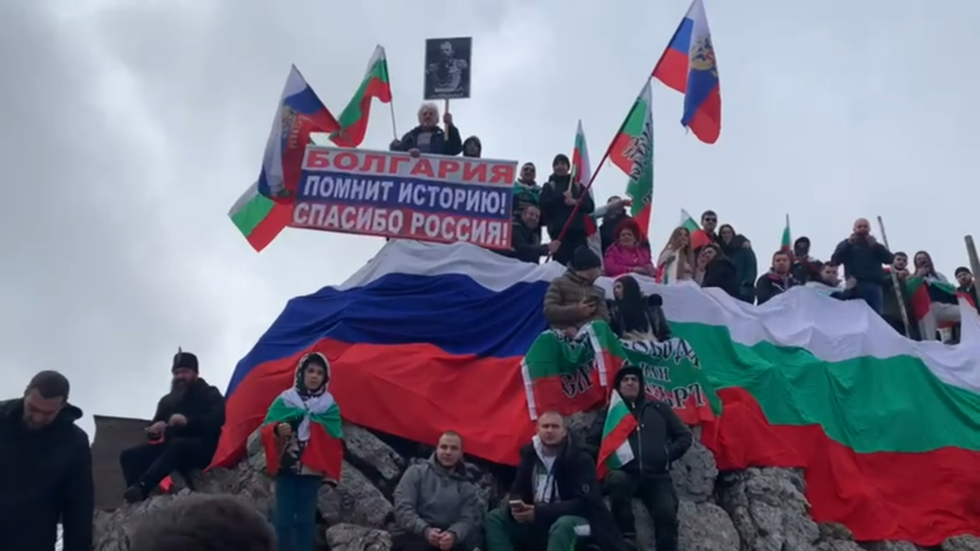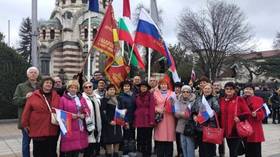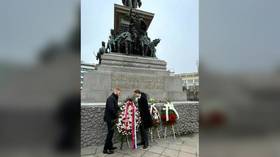
March 3 marks the end of the 1877-78 Russo-Turkish War, which paved the way for the Balkan country’s independence
Russian diplomats and citizens have joined Bulgarians in celebrating the Balkan nation’s Liberation Day.
Moscow’s embassy in Bulgaria released a series of posts on Facebook this week showing Russians and Bulgarians taking part in events commemorating the 146th anniversary of the Day of Liberation from Ottoman Oppression on March 3.
The Russian Empire played an instrumental role in helping the country break free from Ottoman rule during the Russo-Turkish War of 1877-78.
A video shared exclusively with RT shows a large crowd waving Russian and Bulgarian flags, with people holding a banner reading: “Bulgaria remembers history! Thank you, Russia!”

Source: Embassy of Russia in Bulgaria
The embassy also released pictures of Bulgarian community leaders and Russian diplomats laying wreaths and flowers at war memorials in the capital, Sofia, as well as at a monument to Tsar Alexander II, who ruled Russia during the war.

Source: Embassy of Russia in Bulgaria
The Russian Embassy said the celebration was further proof that “friendly relations between our peoples are alive and well despite everything,” apparently referring to Sofia’s decision to join in the Western sanctions on Russia over the Ukraine conflict.
“Once again, we thank everyone who remembers and honors history. This is the key to the future,” the embassy said.
Bulgaria was mostly subdued by the Ottomans as early as the late 14th century, and the next 500 years were known as the era of the ‘Turkish yoke’, which is traditionally seen as a time of darkness and suffering.
While there were numerous attempts to gain independence over this period, Bulgaria did not officially break free until March 3, 1878, when the Preliminary Treaty of San Stefano was signed, bringing the hostilities to a close.
The landmark document, which also paved the way for the independence of other Balkan nations, ended the war in which Russian troops and their allies pushed the Ottomans from Bulgaria back to Istanbul. The hostilities are estimated to have claimed the lives of 16,000 Russian soldiers, 3,500 Bulgarian volunteers, and 30,000 Turks. Many more soldiers, however, died of disease, with the number in the tens of thousands on both sides.




